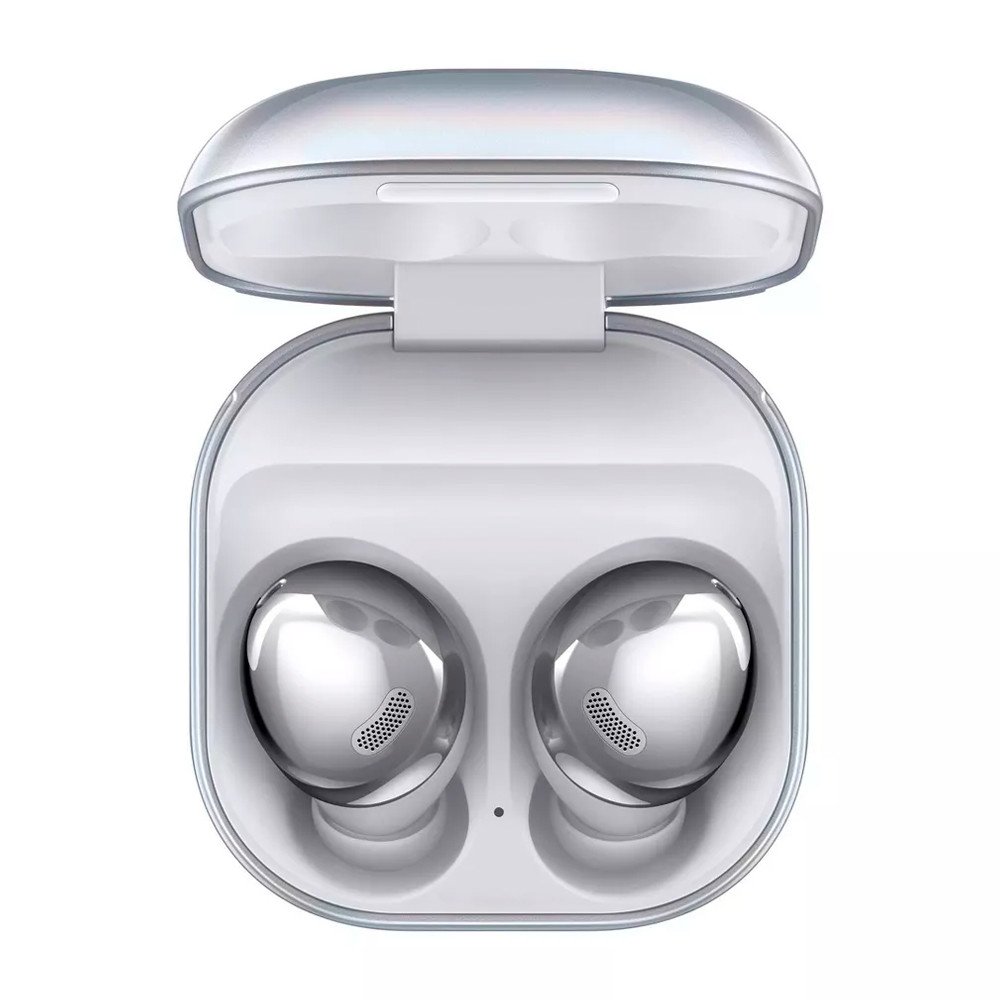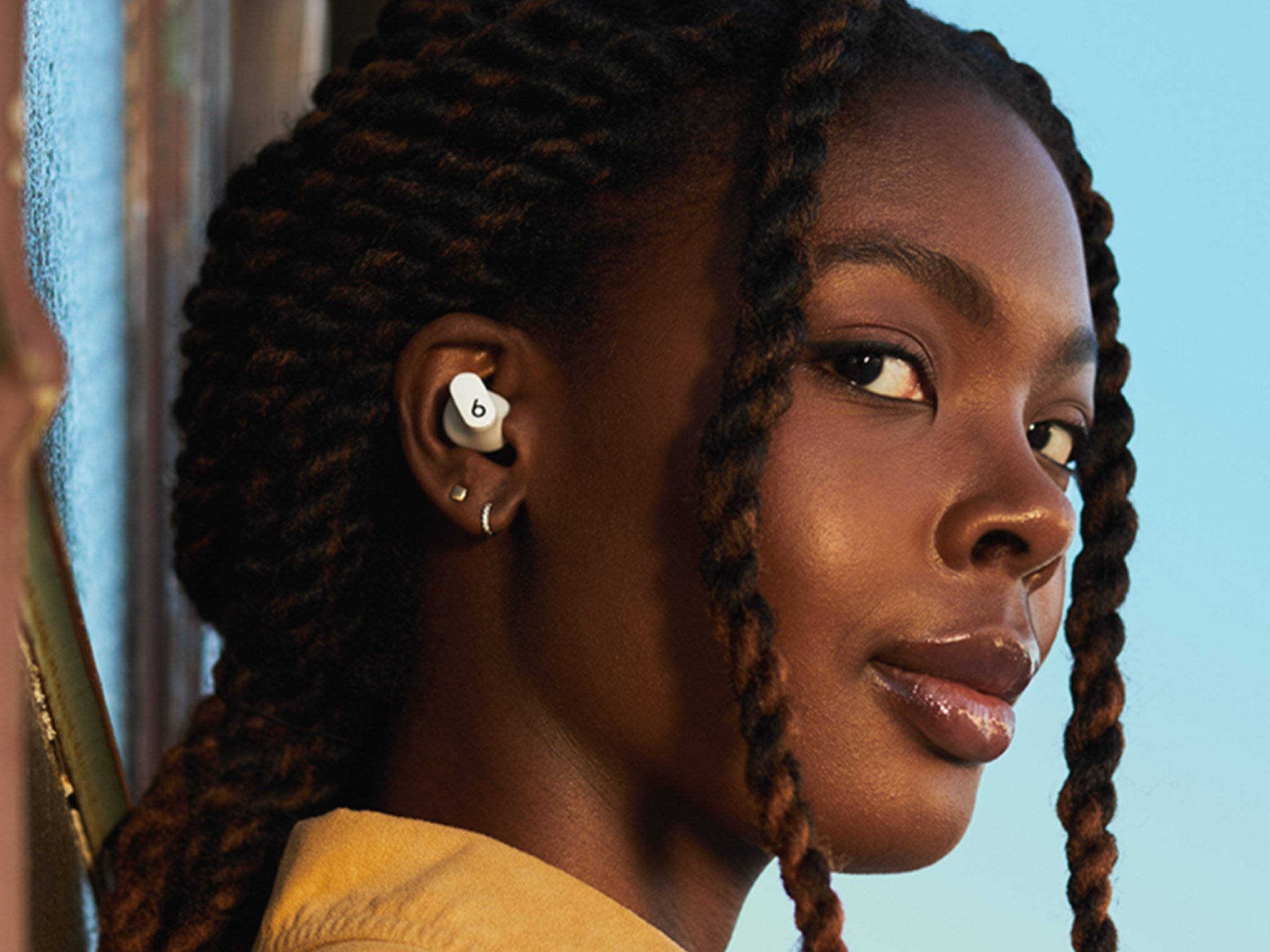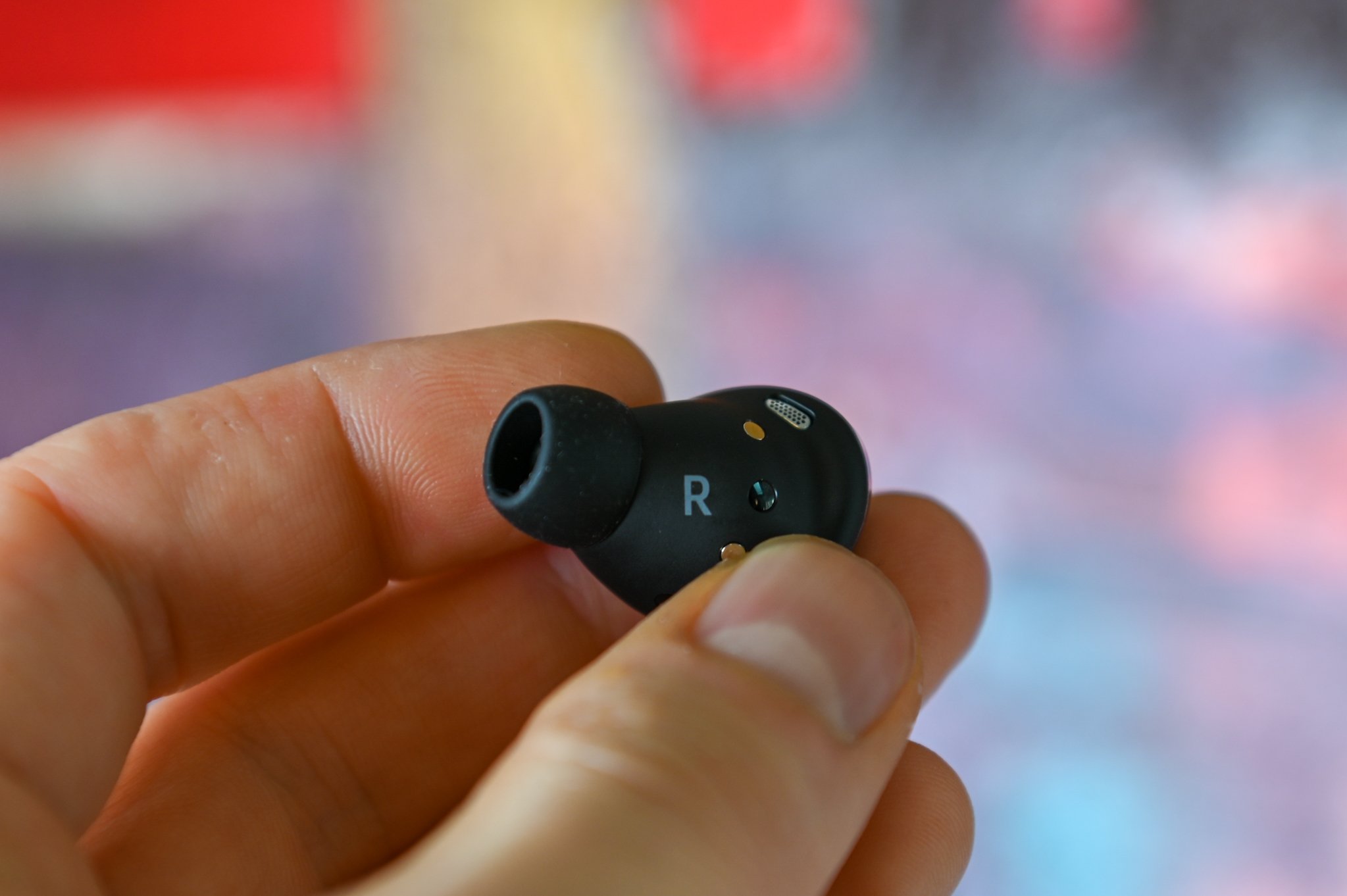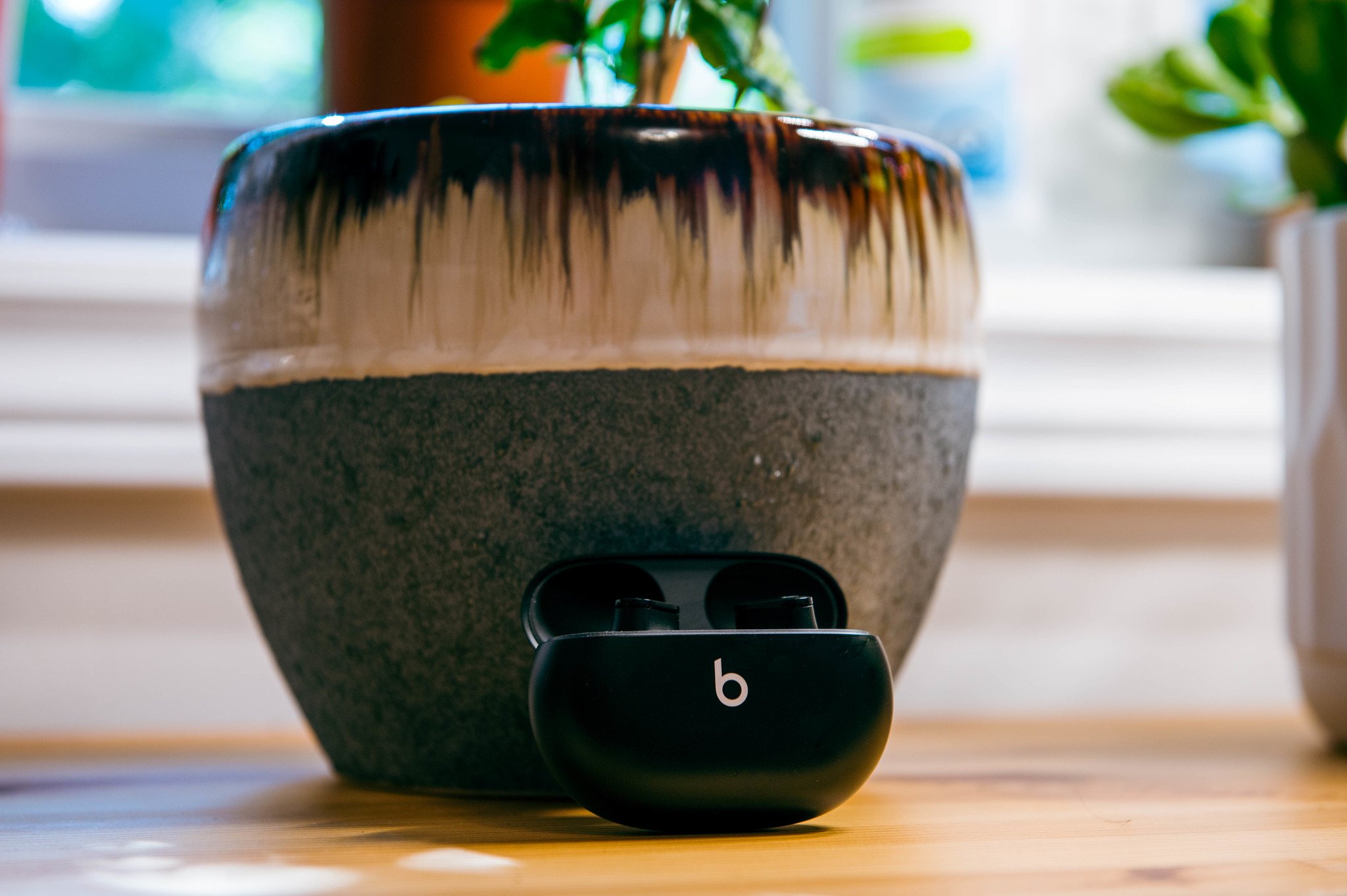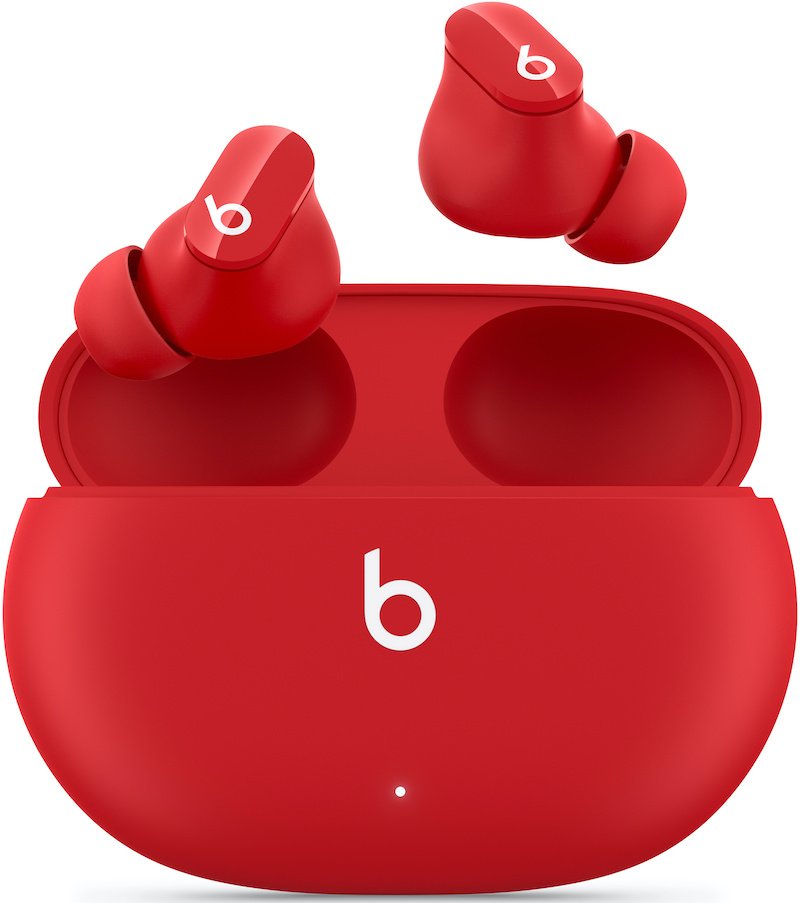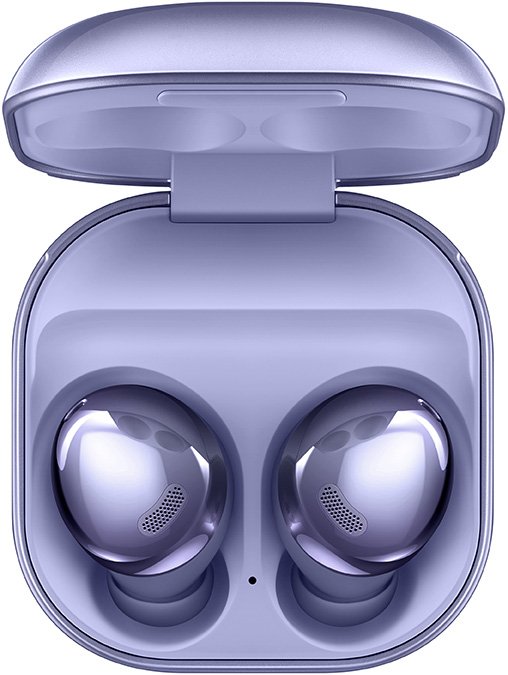Who's got the better Buds between Beats and Samsung?
- Better than typical Beats sound
- Super comfortable fit
- Hands-free Siri access
- Works well with Android
- Decent app support
- No H1 or W1 chip for Apple users
- No auto play and pause
- No wireless charging
Beats designed the Studio Buds to work just as well with Android users as it does with Apple, and it shows once you first pair them. They will definitely give you bass, a comfortable fit you can appreciate, and a flashy color or two to add style.
Flow with ProSamsung Galaxy Buds ProPros- Bold sound and ANC performance
- More custom fit
- Dynamic ambient mode
- Significant water resistance
- Great battery life
- Fit requires more fidgeting
- Ambient mode not as good
Samsung gave the Galaxy Buds Pro a lot to work with, starting with active noise cancelation, ambient mode, and 360 Audio. That package combines to deliver an effective audio experience you can take advantage while active or living a life of leisure.
This is a bit of an odd comparison, only because both earbuds aren't necessarily targeting the same audience. While companies throw the word "Pro" out a lot, these two earbuds tout different strengths. Both are good enough to be among the best wireless earbuds available, but where the Samsung Galaxy Buds Pro have proven themselves to be a stellar pair when they fit right, the Beats Studio Buds are an effective counterweight, and a unique alternative to the AirPods Pro.
Beats Studio Buds vs. Samsung Galaxy Buds Pro: Staying apartSamsung developed the Galaxy Buds Pro to be the best the company offers until a newer pair comes along, so it has a fuller breadth of features. That's not necessarily the case for the Beats Studio Buds, which take a back seat to the Beats Fit Pro as far as design and features go. And yet, this is a tougher battle than it would otherwise seem, partly driven by outside factors.
| Beats Studio Buds | Samsung Galaxy Buds Pro | |
|---|---|---|
| Durability | IPX4 | IPX7 |
| Bud battery life | Up to 8 hours | Up to 8 hours |
| Charging case battery life | 15 hours (24 without ANC) | 18 hours (28 without ANC) |
| Connectivity | Bluetooth 5.1 | Bluetooth 5.1 |
| Digital assistant support | Google Assistant, Siri | Bixby, Google Assistant, Siri |
| Supported audio codecs | SBC, AAC | SBC, AAC, Scalable |
| Speaker size | 8.2mm drivers | 13mm drivers |
| Active noise cancelation | Yes | Yes |
On paper, there's not a whole lot of daylight between these two. Samsung holds two distinct edges in that the Galaxy Buds Pro are far more durable and the case offers wireless charging. The Beats Studio Buds miss on both of those counts. Otherwise, battery life, connectivity, and codec support run pretty close.
Dive deeper, and you find some of the nuances that set them apart. For starters, Beats hold an edge on how the earbuds fit, where the comfort level will likely prove to work better than the Galaxy Buds Pro. Samsung crammed a fair bit of tech into its earbuds, and it shows. The bulging form factor may not always sit right in the inner ear (concha) because of it, although they feel great when they do.
Unfortunately, that hasn't always been the case for some, as evidenced by those who have experienced infections and skin irritation after wearing them. Samsung hasn't publicly acknowledged any specific issue while wearing the Buds Pro, but there is a vocal minority calling them out. That's not to say Beats is immune, as many of the most popular wireless earbuds have seen some of the same issues. But between these two, the Studio Pro have seen better results in the fit and comfort department.
Beats Studio Buds vs. Samsung Galaxy Buds Pro: Setting them apartThe fit is always an important component to hearing the best sound, and that's certainly true for both. Beats didn't ridiculously skew the soundstage to come off as rumbling bass and little else. It's actually more balanced out of the box, and assuming you get a really good seal with your ears, you will notice that yourself. That's also just as true for the Galaxy Buds Pro, but I would say it's more likely you will have to adjust them more often during longer listening sessions.
Both have active noise cancelation (ANC), which you can help further with a good seal to create effective passive noise isolation.
Both have active noise cancelation (ANC), which you can improve with a good seal to create effective passive noise isolation. Samsung did a fine job with the ANC on the Buds Pro, making it really good in a variety of circumstances. Get them to fit well, and you will drown out a lot of the background. You could get similar results with the Studio Buds, though noise cancelation just isn't quite as good in dealing with varying frequencies and pitches.
Both also lean on dedicated apps to promote and highlight features for some degree of customization. Samsung goes a little deeper, whereas Beats keeps things fairly straightforward. You can adjust ANC with two levels on the Galaxy Wearable app, while the Beats app keeps it one level. You can change the onboard controls for the Studio Buds, and because they have physical buttons, they tend to be more reliable than on the Buds Pro.
Samsung also input some unique features, like Voice Detect, where the volume lowers once it senses you're talking to someone. It then goes back up after 5-15 seconds of silence.
Beats Studio Buds vs. Samsung Galaxy Buds Pro: Sounds and callsNeither app lets you customize the sound by way of a manual equalizer, which is a real shame when other brands offer that option. For these two, you have to go with limited presets served up for you. Beats barely even has that, preferring to just leave the default sound, as is. The Galaxy Wearable app has six presets that are decent, but you may be left looking for more.
Given the fit and internal components, it's hardly a surprise the Galaxy Buds Pro sound better.
The Studio Buds do sound good for what you're given. I did mention they don't completely defer to the bass, but even if you wanted a bass-heavy signature, you won't be disappointed. Samsung tackles that from a different angle, preferring to let you decide if you want to use the Bass Boost preset from the Galaxy Wearable app. Either way, Samsung has the edge on overall sound quality, but that's expected considering that it has the higher-end pair of earbuds in this matchup.
Samsung has the better microphone array, leading to a better situation for phone calls, especially when factoring in ANC performance. But the Studio Buds borrow from Apple's AirPods-style call quality, making them surprisingly adept at handling calls with clarity.
As for color choices, Beats gives you red, white, or black, while the Galaxy Buds Pro come in phantom black, phantom silver, and phantom violet.
Beats Studio Buds vs. Samsung Galaxy Buds Pro: Which should you choose?Part of this decision rests on the ecosystem you use. I'm not referring to Android necessarily, but rather Apple and Samsung. The Galaxy Buds Pro offer extra features paired with Samsung devices, much like Beats products have more synergy with Apple's devices. The difference is that Beats designed the Studio Buds to be Android-friendly, and as such, they work pretty seamlessly with any Android device. There's always the brand cachet out in the wild when rocking a pair of Beats earbuds, but style doesn't always equate to substance.
Also not the case for comfort, as has been an unfortunate reality for some using the Buds Pro. Under different circumstances, I wouldn't have even compared these, but given the shrinking price difference, they both became interesting value propositions. Go with the Studio Buds if you want bass to go with the basics. Go with the Galaxy Buds Pro if you want extras and are willing to try them on for size.
Feeling the BeatsBeats Studio BudsDecent Beats
$100 at Amazon $100 at Best Buy $100 at Walmart
The Beats Studio Buds do the few things well that matter, which is how they fit, how they sound, and how they work with Android.
Striding aheadSamsung Galaxy Buds ProGood sound and more
$130 at Amazon $130 at Best Buy $130 at B&H
Samsung takes its best true wireless earbuds to the next level by adding new features that set them apart from past versions.

